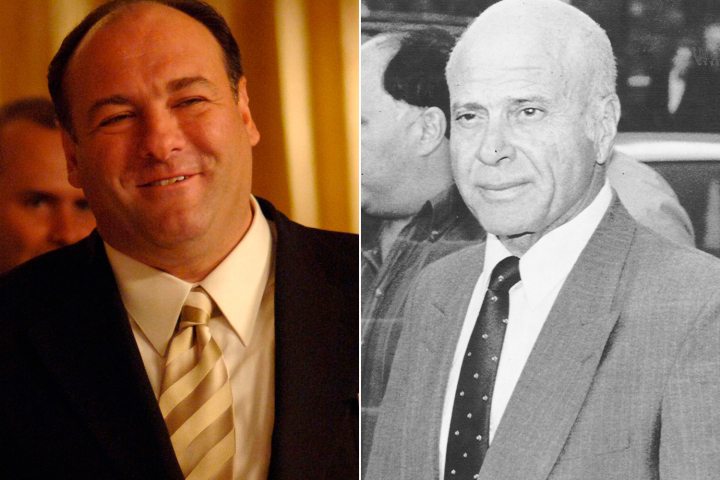The popular Sopranos television series may helped make New Jersey’s connections to the Mafia and organized crime a popular discussion topic at dinner tables across America. However, long before the Sopranos there was an actual mafia network running criminal activities across the Hudson River that divides New Jersey from New York (and the Five Families who operated in the big city). And in New Jersey, the DeCavalcante Family ran the show. In fact, many of the characters and incidents within Sopranos are reported to have been inspired by DeCavalcante exploits. However, in many cases DeCavalcante crime family activities were even more colorful than the fiction they later inspired.
Origins – Sam the Plumber
New Jersey was a long restive region for organized crime, with no single boss and numerous criminal networks. During prohibition and afterwards, several New Jersey families controlled their own city-wide networks, and crews associated with the Five Families in New York staked out a claim on rackets in Jersey as well. Crime bosses came and left, and the turnover meant that there was no true power center. That all changed in the 1960’s, when Simone Rizzo DeCavalcante came on the scene.

Nicknamed Sam the Plumber because of the plumbing supply store he operated as a business front, DeCavalcante was an ambitious Mafioso who managed to organize New Jersey’s rackets like never before, and make them profitable. Under his guidance, the DeCavalcante Family added dozens of made men to their ranks, and even gained a seat on the infamous Commission. At the height of his power, DeCavalcante’s crime family was reported to oversee illicit activities worth over $20 million a year.
Unfortunately for Sam the Plumber, his rise to power coincided with another development: more aggressive and sophisticated law enforcement efforts to take down organized crime. The FBI surveilled DeCavalcante and several of his associates, built an effective case against him, and in 1969 he was convicted on a variety of racketeering charges. Following his release from prison in 1976, he allegedly retired from the Mafia and moved to Florida. He died of natural causes in 1997.
But that was far from the end of the DeCavalcante Crime Family.
1970s-1990s Organized Crime – Jersey Style
After DeCavalcante’s incarceration and apparent retirement, he appointed a trusted

lieutenant, Giovanni Riggi, as the head of the family. Riggi, nicknamed “Johnny the Eagle” brought lucrative union and construction connections to the family’s illicit portfolio. Like Sam the Plumber, Riggi also had strong connections to the Five Families in New York as well; he had a particularly close relationship with John Gotti, boss of the Gambino Family.
Riggi’s knowledge and control of unions enabled the DeCavalcante Crime family to shake down contractors and municipal governments, often earning the family impressive profits. And under his lead, the DeCavalcante spread money around to local politicians and often presented a veneer of legitimacy – Riggi helped develop little league baseball fields and supported many charitable causes – even as the family was committing serious crimes, extortion, and fraud across the state.
Like his predecessor before him, the law eventually caught up with Johnny the Eagle as well. He was convicted on a variety of extortion and labor charges in 1992, and sentenced to twelve years in prison. While incarcerated, Riggi attempted to maintain control of the DeCavalcante crime family, with uneven success. He appointed Gaetano Vastola to oversee the family while he was behind bars, but Vastola was subsequently arrested shortly afterwards as well. Vastola’s successor, John D’Amato, was reputed to be more loyal to the Gambino’s than his own New Jersey associates. D’Amato subsequently disappeared in the late 1990’s, apparently after someone alleged to socially conservative mafiosos that he was bisexual.
Decline -The 2000s
The high turnover of mafia leadership that gave rise to the DeCavalcante family in the 1960s played a key part in its precipitous decline four decades later. By the late 1990s, high turnover rates in the family’s leadership – due to arrests, deaths, or disappearances – was beginning to take its toll on the crime network’s fortunes.
Unrelenting law enforcement pressure was further diminishing the power of the DeCavalcante crime family as well. The FBI was able to pressure several lower ranking DeCavalcante associates into becoming informants after catching them committing serious crimes; these informants helped the Justice Department to gather substantial evidence against the family, and led to scores of long-term Federal convictions.
Today, the DeCavalcante Crime family is a shadow of its former self. Most of its leaders are either dead or incarcerated, and other criminal networks have wrestled control of the remaining rackets that once provided serious revenue for the family. However, the family’s declining fortunes coincided with the debit of the Sopranos, the hit television series depicting the lives of second-tier mafiosas operating out of New Jersey. Unsurprisingly, the DeCavalcante Family were fans of the show. After the first season, a crew of remaining family members were recorded praising the show’s realism and acting.
Life imitating art, indeed.

1 thought on “DeCavalcante Family”
Comments are closed.